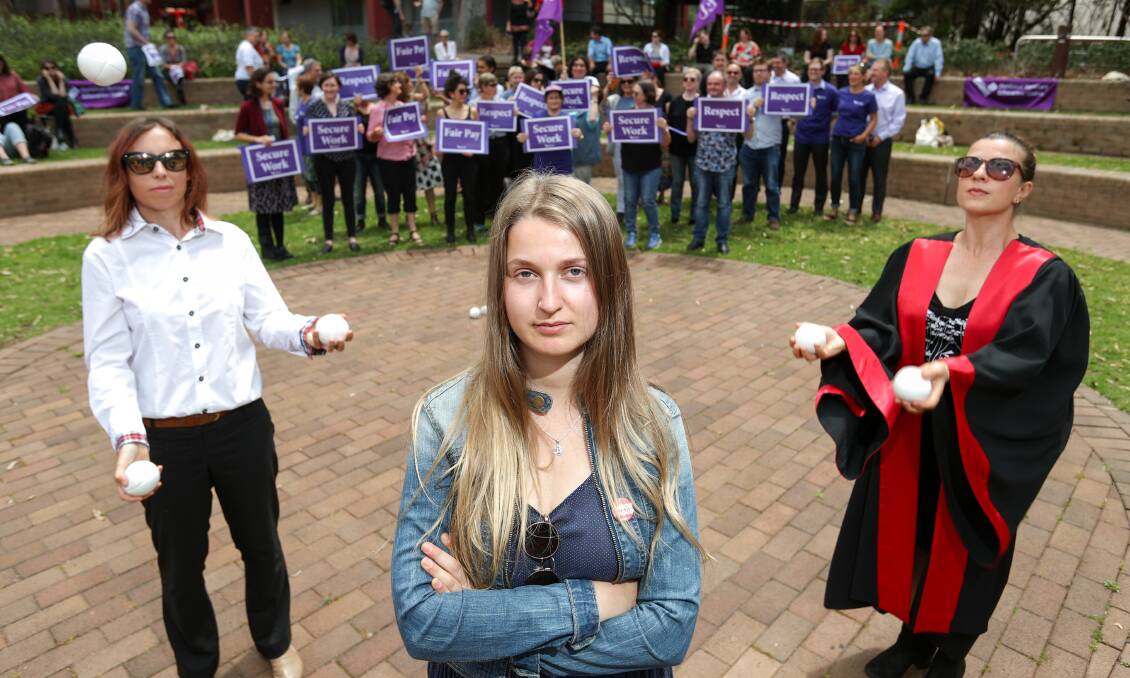
Professional circus performers were paid to juggle balls at the University of Wollongong on Wednesday.
Subscribe now for unlimited access.
$0/
(min cost $0)
or signup to continue reading
But the daily juggle faced by UOW staff in ‘’insecure work’’, to pay their bills, their rent and put food on the table, saw professional and academic staff come out in force to launch a campaign for secure work and fair pay.
Job security is still a ‘’real fear’’ for e-support officer Mei-Ling (Josh) Dubrau, who has had 12 different jobs at UOW over many years
And Dr Dubrau is not alone, with UOW employment data showing that 75 per cent of the university’s almost 6000 employees in the 2015/16 financial year were on either casual or fixed term contracts.
‘’I don’t think a lot of people know the extent of the casualisation problem here,’’ she said.
‘’Some casuals are actually not even on a real contract. Some casuals are employed on a week to week basis.
‘’They could be told halfway through the subject they are teaching that they are no longer required and that's legal. They have no recourse.’’
Dr Dubrau called on university management to at the very least convert these week-to-week casuals to fixed term contracts.
Down the road she wants management to look at the conversion of fixed term contracts to actual positions.
Associate Professor Georgine Clarsen, the UOW branch president for the National Tertiary Education Union said there was no legitimate reason for the university to keep 75 per cent of people on insecure forms of employment.
A UOW spokesperson previously told the Mercury there were only 453 full-time equivalent casual staff. As of January 2017, the total number of academic and professional services staff, excluding casuals, was 2241.
‘’We are launching our campaign today to win a better workplace,’’ Ms Clarsen said.
‘’Much of our undergraduate teaching is being performed by casual staff and hundreds of our administration staff are stuck on tenuous, year-to-year contracts. Some have been on these contracts for five or 10 years.’’
Isabelle Liddy said as a UOW student it was in her interest to support the teachers' struggles as their ‘’teaching conditions impact our learning conditions’’.
‘’I think the only way forward in the struggle to stop the commodification of education is for teachers and students to band together,’’ Liddy said.

